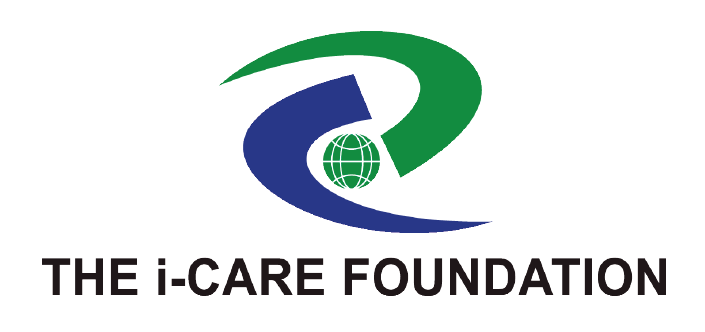|
About the foundationFounded in 2008 by Farrokh Captain
Legal Status - Donor Advised fund (grant-making foundation) Needs Addressed - Health, education, and livelihoods Geographic Focus - Pakistan Resources Given by Family/Firm - Financial, reputational Sources of Financing - Contributions to the donor-advised fund Ongoing Family Involvement - Captain is Chairman and an advocate for the Foundation’s activities |
|
|
CONCLUSION
The fact that i-Care undertakes due diligence for many donors, giving to the same group of organisations, makes giving more cost effective for donors. However, it means that i-Care has to be fastidious in its screening process – if there were ever to be a scandal, then the trust in i-Care and the funds under management would evaporate overnight. Standards have to be high for another reason: the majority of i-Care’s donors are Pakistani expatriates in the US. American counterterrorism and money laundering laws regarding the flow of funds to Pakistan are stringent. One has to satisfy the US government that no funds, from America or anywhere else, will go to benefit any person who could be a radical or a terrorist. Despite the technical and practical difficulties that such rules present, the i-Care Foundation has succeeded in being certified at the top of the ‘white list” of the US government approved money delivery vehicles. This is very comforting for the donors – some of whom fear amid night knock on their doors by the FBI.
I-Care also has an ambition to bring about a paradigm shift amongst donors, moving them onward from passion-based giving, often characterized by simply writing a cheque and walking away, to giving led by the head as much as by the heart. Captain puts down the success of the Foundation not only to the need for a reliable giving vehicle – but also to each of his reputation as a figure that both NGOs and donors can trust. His years of fundraising for the causes he supports made him a well-known figure in Pakistan as well as in the diaspora. Thus i-Care quickly became widely well known in the donor community. His 25 years track record, and the fight to ensure the survival of the Pakistan Human Development Fund’s work meant that he, in a country where trust is very scarce is trusted by donors and recipients alike. When a firm hand is called for, Captain is prepared to step in. He notes, “the charities will accept admonishment and steering from me, whereas they might not take kindly to it from someone else.”
This also has guided his choice of trustees on the 16-member board, whom, at the very minimum, need to have an excellent reputations and a record above all suspicion. Amongst them are big names in Pakistani business and philanthropy, including Arif Naqvi and Ahsan Jamil from the Aman Foundation, and Ali Siddiqui from the Mahvash and Jehangir Siddiqui Foundation. “Ours is a personal society,” Captain notes. “People give to people, not to causes.” Undeniably, many are prepared to give handsomely to causes underwritten by the reputation and record of Farrokh Captain.
The fact that i-Care undertakes due diligence for many donors, giving to the same group of organisations, makes giving more cost effective for donors. However, it means that i-Care has to be fastidious in its screening process – if there were ever to be a scandal, then the trust in i-Care and the funds under management would evaporate overnight. Standards have to be high for another reason: the majority of i-Care’s donors are Pakistani expatriates in the US. American counterterrorism and money laundering laws regarding the flow of funds to Pakistan are stringent. One has to satisfy the US government that no funds, from America or anywhere else, will go to benefit any person who could be a radical or a terrorist. Despite the technical and practical difficulties that such rules present, the i-Care Foundation has succeeded in being certified at the top of the ‘white list” of the US government approved money delivery vehicles. This is very comforting for the donors – some of whom fear amid night knock on their doors by the FBI.
I-Care also has an ambition to bring about a paradigm shift amongst donors, moving them onward from passion-based giving, often characterized by simply writing a cheque and walking away, to giving led by the head as much as by the heart. Captain puts down the success of the Foundation not only to the need for a reliable giving vehicle – but also to each of his reputation as a figure that both NGOs and donors can trust. His years of fundraising for the causes he supports made him a well-known figure in Pakistan as well as in the diaspora. Thus i-Care quickly became widely well known in the donor community. His 25 years track record, and the fight to ensure the survival of the Pakistan Human Development Fund’s work meant that he, in a country where trust is very scarce is trusted by donors and recipients alike. When a firm hand is called for, Captain is prepared to step in. He notes, “the charities will accept admonishment and steering from me, whereas they might not take kindly to it from someone else.”
This also has guided his choice of trustees on the 16-member board, whom, at the very minimum, need to have an excellent reputations and a record above all suspicion. Amongst them are big names in Pakistani business and philanthropy, including Arif Naqvi and Ahsan Jamil from the Aman Foundation, and Ali Siddiqui from the Mahvash and Jehangir Siddiqui Foundation. “Ours is a personal society,” Captain notes. “People give to people, not to causes.” Undeniably, many are prepared to give handsomely to causes underwritten by the reputation and record of Farrokh Captain.
